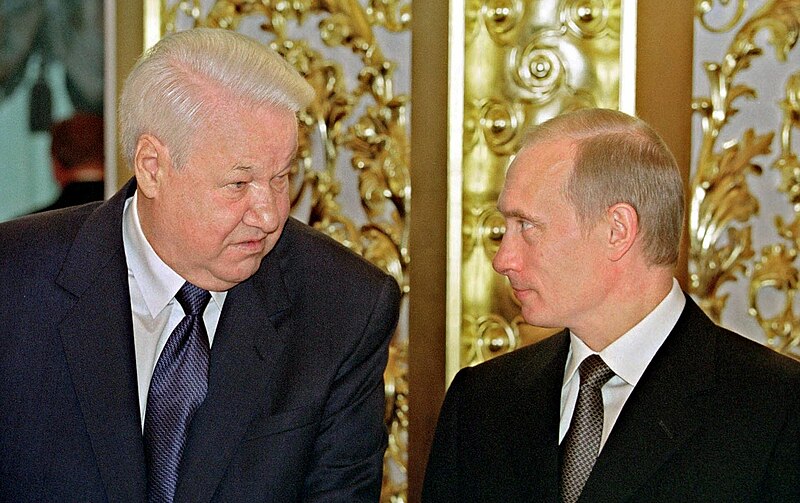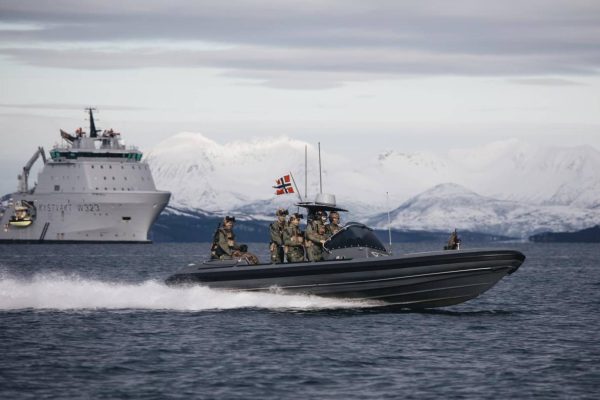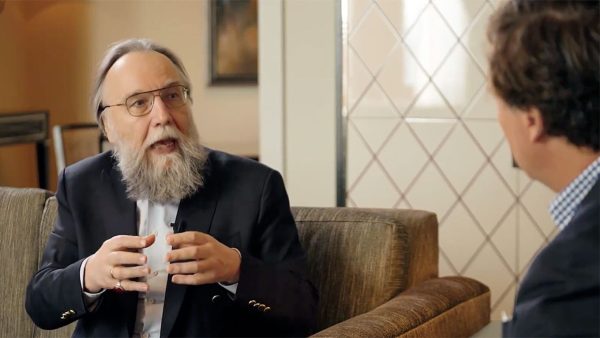What went wrong? Looking back on Russia’s first president, Boris Yeltsin, and his close ties to oligarchs in the 1990s, which led to the privatization of national property and the rise of a super-rich class of businessmen, has always been controversial. Some answers at least are provided in a 67-minute film that has sparked rancorous disputes among the Russian opposition and Russian society.
The film, by Alexey Navalny’s Anticorruption Foundation (FBK), with chairwoman Maria Pevchikh as star narrator, has the intentionally provocative title, The Traitors.
The main goal, as Pevhikch states at the outset, is to seek an understanding of how Russia derailed in the years after the Soviet Union’s collapse in 1991. In the film-makers’ view, the country had a chance to become a normal, rules-based democratic country, but failed because those entrusted with the people’s hopes betrayed them.
Who are those “traitors”? According to documentary makers, the greatest sins were those of Boris Yeltsin, who came to power as a fearless fighter against Communist party corruption, and once in power simply filled his boots with wealth. The newly minted people’s president started by grabbing an entire apartment building in a leafy Moscow suburb for himself and his closest allies — as personal property. It didn’t get better from there.
The documentary points too at the first Russian oligarchs, Boris Berezovsky and Roman Abramovich, who got a major state TV channel and a major oil company, Sibneft, from Yeltsin in exchange for political support in the presidential election of 1996.
Some of this was mere influence peddling, but some was outright corruption and there was bloodshed too. The film notes how those who opposed the privatization of state property died in strange circumstances, like Ivan Litskevic, a director of an oil refinery in the west Siberian city of Omsk, the largest in Russia, or were murdered, like Oleg Chertov, a local Omsk parliamentarian. Numerous others suffered the same fate.
The documentary has provoked an emotional eruption. Its mid-April release was followed by a barrage of furious comments from the leading authors of 1990 reforms and other key players, as well as prominent intellectuals and journalists.
Viktor Shenderovich, a famous political satirist, now in exile, called the documentary, “straightforward and primitive,” though he admitted it was a harsh and probably fair verdict on his generation which had failed to establish a proper democracy in the country.
Many attacked the documentary as untimely and said it divided those opposed to Vladimir Putin. A former tycoon, now a sponsor of several opposition projects, Mikhail Khodorkovsky, asked: “Why now urgently raise issues that have no practical significance for the fight against Putin and against the war, but are splitting the opposition?”
Georgy Satarov, an adviser to Yeltsin, said: “Crumbs of factual material are mixed with their interpretation, and one is not separated from the other.”
Many disliked the openly provocative title and accused Navalny’s people of using the language and tools so often wielded by the Kremlin’s propagandists.
Some went as far as to accuse Navalny’s organization of paving a way for a bloody revolution. Lev Shlosberg, deputy head of the Yabloko party, the only purportedly independent party allowed to exist in Putin’s Russia said: “The discussion about Maria Pevchikh’s film Traitors is essentially a discussion about the admissibility of revolution in Russia as a way to restore justice. This is a discussion about the right to restore justice through violence, through violation of human rights and freedoms.”
Oleg Sysoev, Yeltsin’s deputy prime minister, made the same accusation of Bolshevism, calling Pevchikh “a new Sharikov” — a character from Mikhail Bulgakov’s satire of Bolshevism The Heart of a Dog, where a lab experiment turns a dog into a man with all the hallmarks of a primitive revolutionary.
Some important voices have supported the film. Boris Akunin Chkhartishvili, a widely popular writer whose books were recently banned in Russia, remarked on Facebook: “In general, yes, that’s how it was. Yeltsin and his team are to blame for the fact that Russia ended up where it ended up. And many of those whom I personally trusted in the early 1990s can and should be called ‘traitors.’”
The level of emotion reflects the unease of those who long comforted themselves with a simplified dichotomy of the good liberal Yeltsin versus the bad authoritarian Putin.
This contradistinction reflects to some extent that while Putin crushed political opponents, Yeltsin mostly tolerated them. But it is also worth remembering that it was Mikhail Gorbachev who opened up the country and loosened state control, effectively diminishing his own grasp on power (questioned on the details of KGB activities in Czechoslovakia’s year of revolution in 1989, he told a Prague audience in 1999, “Why do you ask me?”)
Yeltsin, on the other hand, never did anything to weaken his powers. Quite the opposite, he introduced the constitution with enormous presidential prerogatives after his tanks had shelled his own parliament in 1993.
He was also the man who made Putin the indisputable leader of the country at the decade’s end.
The Traitors has launched a long-delayed and badly needed discussion about the 1990s, when Russia saw a democratic election for the first time in modern history, but also ushered in a privatization program that enriched a small group of oligarchs.
It was the widely shared disillusionment with this gigantic transfer of common wealth to a tiny group of men, coupled with the 1998 financial crisis when debt default left most Russians horribly impoverished, that created the public demand for a dictator. This popular desire for someone able to restore order after the economic turmoil was the creation of democrats and oligarchs.
The release of The Traitors marks a seminal moment. It is the first time the opposition-in-exile introduced a new national debate rather than simply responding to the Kremlin’s behavior.
Still, more importantly, it has sparked a heated debate on both sides of the Russian border. It effectively destroyed the argument that the Russian political diaspora is irrelevant after more than two years of all-out war. How else to explain this vibrant discussion and the already-enormous interest it has attracted? The film has already been watched more than 4 million times.
It talks of Russia’s future and asks the most urgent question. As Pevhikch says, Navalny’s “biggest fear was that Russia might again be presented with the opportunity it got in the 1990s, only for us to squander it once more.”
Navalny’s people promise there will be more to come, so The Traitors is only the first episode of a series.
Finally, no one can ignore Navalny’s influence on all this.
The opposition leader is taunting everyone from beyond the grave. Putin may have done away with his enemy, but Navalny continues to provoke, goad and inspire.
Death has not silenced him.
Irina Borogan and Andrei Soldatov are Non-resident Senior Fellows with the Center for European Policy Analysis (CEPA.) They are Russian investigative journalists, and co-founders of Agentura.ru, a watchdog of Russian secret service activities.
Europe’s Edge is CEPA’s online journal covering critical topics on the foreign policy docket across Europe and North America. All opinions are those of the author and do not necessarily represent the position or views of the institutions they represent or the Center for European Policy Analysis.





